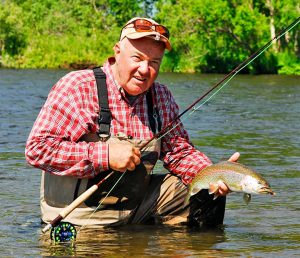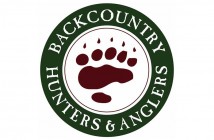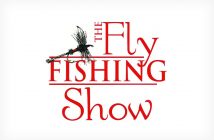 By Mike Michalak – The Fly Shop – Redding, Calif.
By Mike Michalak – The Fly Shop – Redding, Calif.
Our sport’s industry has changed dramatically since I opened the door to The Fly Shop in 1978. Kauffmans Streamborn, Fly Fisherman’s Bookcase, and all the large independent and catalog retailers of that era are now gone. Their demise, and the ensuing collapse of nearly 60% of all the shops prospering at the industry’s high point in 1995 can, for the most part, be attributed to a failure to recognize and adjust to changing times and new consumer buying habits.
Gone, too, is the dominance of many of the brands and products then considered essential to the success of any fly shop. In the 70’s and 80’s the number one fly rod manufacturer was Fenwick and the top fly line vendor in the sport was Cortland. No serious fly fishing retailer could survive without their rods on the wall or their fly lines on the shelf. However, policies that were interpreted as indifference by those companies (and others) to the dealer’s best interests alienated their core retail support and allowed and others to move to the top tier in the minds (and on the shelves) of the better fly fishing shops in America. Specifically, Fenwick’s move to the big box stores pissed off the specialty shops as much as Cortland’s decision to abandon a policy assuring geographical exclusivity. It wasn’t just new products that opened the door for Sage in ’82. It was its mission statement “specialty products for specialty stores.” It was Jim Vincent’s promise to police dealer discounting of his fly lines, and Simms’ commitment to put an end to the wader delivery problems that were killing retailers at the cash register.
From my chair it appears that very sharp manufacturer-retail pendulum is swinging again, propelled by industry policy changes that dealers should recognize again as near-total indifference to the health of fly fishing retailers. It’s evidenced by our manufacturers’ steady creation of online stores with product, pricing, inventory, and close-outs that are impossible to compete with or anticipate. Add to that the emergence of big box distribution (once a no-no), Costco dumping of excess inventory, and the most recent and extreme coffin nail—hooking up with Amazon to accelerate manufacturer-to-consumer direct retail sales—and you have a recipe that is gutting fly-fishing specialty shops.
The vendors’ message is clear and indisputable. They’re now our toughest competitor, not the shop down the street. While reputable brick-and-mortar retailers struggle to survive with gross margins of approximately 40%, those same manufacturers whose reputations we helped build, reap comparably astronomical retail profits (estimated to average 83%) with little or no conventional retail overhead. Their concern is ROI. Period. The conundrum is that retailers have complacently condoned all of this, continue to support the very brands with the most egregious policies, and are complicit in support of what any idiot should recognize as a short-sighted, myopic business model that threatens both fly fishing specialty dealers and the sport.
None would argue that Amazon or the web creates, fosters, teaches or nourishes new or young fly fishermen. AFFTA and the manufacturers know from their own surveys that’s done by parents, friends, clubs, and professional fly fishing shops. Logic would dictate that the fewer the number of shops (good shops that teach and enthuse interested anglers) the fewer fly rodders there will be to take the place of angling dinosaurs like myself and support those clubs. So, you’d think that the manufacturers would see that killing the retailers (intentionally or not) is damaging the sport by choking the cow that is producing the milk. The same dummies who gave us lifetime warranties are now stepping on a steeper and more slippery slope. But even dumber are the retailers who continue to champion manufacturers who are aggressively walking off with an ever-growing percentage of consumer-direct retail sales.
My unsolicited advice to the vendors: Level the field. Take a step back and create a category for professional shops among your dealers – the brick-and-mortar operations who are teaching the sport, guiding the clients, working with their local clubs, and helping grow the sport. Give them a better margin than the guy working out of his garage and capitalizing on others’ efforts to build fly fishing. Consider introducing your new products exclusively through the pro shop dealer category before making them available through the general sporting or big box store. Add a better suspender to your waders available only through the pro shop account, or a better rod case, a complementary wader bag or logo. Add a color or style available only at a brick-and-mortar dealer to drive business through those doors. Make certain high profile items (not just the high price items that can’t be sold elsewhere) available only through those pro shop accounts and not available on your own website or Amazon. Create programs designed to support, not supplant your dealers and make them stronger, not endangered.
Get creative and support the guys who took you to the dance and are teaching others the right steps, or understand that the moment there is a demonstrably better rod, reel, fly line, or wader, you are going to be treated with the same indifference many of you are showing now.
Equally simple is the answer for dealers. Start with product selection and the early orders you’ll soon be asked to deliver. Throw support behind those manufacturers who don’t deal directly with consumers and on Amazon. Sure, it’s not practical or advisable to dump a major, well-advertised brand that deals direct, but you don’t have to do that. If a company has what you feel is the best product, it should be your recommendation. But you don’t have to buy or sell their ancillary products when there are terrific alternative available from vendors who aren’t intentionally pursuing your clients, gutting traditional retail sales, and deserve your business. Tell the guys that are sending their reps into your shops that if they want your business, that they can’t be in the same business. At the same time, make sure your staff and your guides reserve their endorsements for the products and manufacturers who are behind your store and your back with something other than a knife.
We’re all in this together (even Orvis and Patagonia, whose business models present a separate paradigm) and the sooner everyone realizes that and begins to take the steps necessary to strengthen the industry, the better off we’ll all be.



8 Comments
Great write-up Mike! True and genuine manufacturer/dealer partnership is the backbone of this industry and is critical to it’s health.
Thank you Mike Michalak for telling how it truly is for us small businesses in the fly fishing industry!
The best article I’ve ever read on “our” retail experiences.
Thanks again,.
Jim’s Sports Center, now in our 50th year of this ever changing brick and mortar retail fishing industry.
What a great piece, this really resonates. Thank you Mike for your thoughts and words.
It’s about time somebody spoke up for the dealers. I am so sick of hearing I can get cheaper from … Ive dropped vendors that started selling direct and also dropped ones that sold to box stores. In some cases it was a rather large amount of money. I have done best by seeking out my own products, creating new items, importing or buying direct . I’ve acted as my own distributor and captured additional margin. In some cases I reduced prices or offered more items. Just like the customers I can shop on the internet too.
I have my own fly tyers and offer patterns unique to me. I am troubled by vendors marketing direct to customers by using warranty info as customer mailing lists .
Amazon doesn’t support fly clubs, TU, FFI clubs. Nor do they teach or instruct . Further if you use their marketing clout, they capture 25% of your margin for doing little or nothing . No thanks.
Amazons size is its weakness. They can’t special
Order sizes , colors or items not in their product groups. They can’t add backing, set drags, they don’t offer fishing advice or hatch matching. Amazon can’t recommend rods nor do they grade hackle or size saddles .
Wise words, Mike. I agree with your assessment of the current retail/manufacturer relationship, yet to be fair many manufacturers would also agree with you. The industry movement towards short-term rewards vs. long-term relationships is troubling. Discounting, direct sales, faceless on-line retailers, box stores, auction sites, and all the other issues brick and mortar retailers face daily are made even harder since we are “independent retailers.” Without a unified voice our concerns fall on unsympathetic ears.
While AFFTA has the platform for representation of all members of our Industry, participation by retailers is embarrassing. All retailers, members or not, benefit from the representation of AFFTA when it comes to things like tariffs, public lands, and other national issues of concern . If all retailers were members perhaps a united voice could tackle some of those day to day hurdles that cut into our business. Competition is healthy as long as the playing field is level. When manufacturers change established policies to fit their current business models that playing field is no longer level.
Brick and mortar independent retailers are the front line of our industry and the only engine of growth. Our industry does not translate to those other outlets without loss of the relationships that built it. Good retailers understand relationships.
Joel La Follette
AFFTA Board Member
Membership Committee Chair
Mike, well said.
I will add though that the weakness of Specialty Fly Shops has aways been and still is AFFTA. Which, indirectly is vendors. AFFTA has failed to unify the industry around a clear path of entering the sport of fly fishing through its specialty retailer. The PGA is a clear example of a trade organization that focuses not only on getting new people into the sport of golf but that they use a pro shop.
AFFTA’s inability to develop an industry wide recruitment program has allowed one vendor to dominate. My shop was an early contributor to this 101 program and it is easily one of the single most successful programs that has directly grown my business.
I second the idea of manufacturers offering fly-shop-only products. When I walk into te Ted Fey flyshop in Dunsmuir, I’m itching to buy stuff to support the shop. If I see anything, and I mean anything, that I haven’t seen in the catalogs, I buy it.
BTW, Bob, at afore mentioned ship, ties the flies that work on the area’s rivers. None of that imported stuff (apologies to Wayung, and Made, and Aranya, and Nor, and Yu Yan, who work in the fly tying sweat shops and really need the money).
Mike, you are right on the money as you have always been. I started a mail-order business 40 years ago offering used fishing books and used fly rods & reels. I entered the new tackle realm in the mid-1980s with HARDY & CORTLAND. Had fun for a while, but have bailed out on that I want the retail shops to survive, so I tell customers to go to the shops for new HARDY stuff. I don’t want to compete with the retail shops. I have many friends in the fly fishing industry, and want to see it survive.